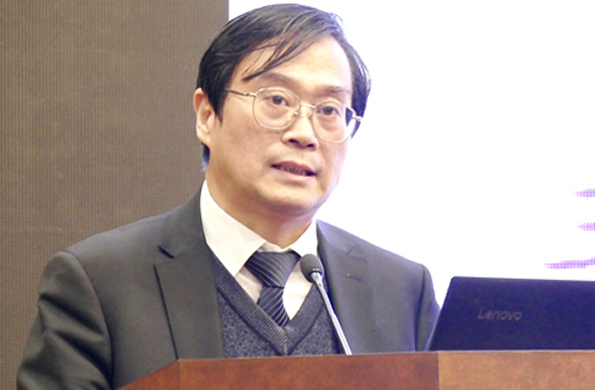China’s pension insurance system sustainable
 China’s pension security is gradually improving. This guarantees the elderly will be well cared for and addresses challenges brought by population aging.
China’s pension security is gradually improving. This guarantees the elderly will be well cared for and addresses challenges brought by population aging.
Recently, pension issues have drawn the public’s attention. China has entered an aging society. It is our common wish to take care of the elderly and help them live a happy and long life. China has now established the world’s largest basic pension insurance system. By the end of 2018, across the nation, more than 900 million people had participated in various kinds of basic pension insurance. The government is gradually improving this nationwide network.
Since the turn of the millennium, the aging of China’s population has continued to accelerate. It is estimated that China’s population aging will peak by the 2030s. The aging population will put increasing pressure on China’s pension security and an increasingly heavy burden on the nation’s fiscal subsidy. The aging of China’s population is severe. In order to be well prepared, China has made comprehensive efforts to improve and reinforce the nation’s basic pension insurance system.
Since the 18th CPC National Congress in 2012, China has deepened its all-around reform of the pension insurance system. It includes the reform of the pension insurance system of the employees in government departments and institutions, the establishment of a reasonable mechanism for basic pension adjustment, and the elevation of the overall planning of the pension. The government has also explored ways of managing the basic pension funds and accelerated establishing a multi-tiered pension insurance system.
In particular, on the basis of the current policy that one province should establish a uniform system covering related basic pension insurance issues for all enterprise employees in the province, China initiated a central adjustment system for basic pension funds which will help ease the burdens of some local governments that face revenue-payment imbalances. The budget of the central adjustment funds is about 600 billion yuan this year, and 160 billion yuan of these funds will go to help those regions with payment imbalances. China will gradually increase the ratio of funds that each province should turn over to the central adjustment fund.
To ensure the payment of the basic pension, China is continuing to increase fiscal support for basic pension insurance. In 2019, the central fiscal budget will provide more than 500 billion yuan as subsidy for basic pension insurance for the employees of enterprises, and preferential policies have been made for the provinces in the central and western regions of China and provinces known as the nation’s old industrial bases.
In addition, China established the National Social Security Fund in 2000. This is a national reserve fund specifically for addressing the aging population. It can also be used as a supplement and adjustment fund for social security expenditure in the case of a tight budget. Furthermore, other state-owned capital can also serve as an important source of national social security funding. It would be fair to say that China’s pension insurance system is sustainable and capable of addressing the impact and challenge of the aging population.
Another way to look at this issue is that the aging population is not just a challenge but an opportunity for a “silver economy.” As the elderly population increases, demand for elderly services will grow rapidly. Currently, the service industry for the elderly has stepped into a golden phase of development, and it shows vast room for future development. The gradual advancement of China’s pension insurance system will not only ensure that the elderly will be taken good care of but also create an environment for the prosperous development of various industries related to the needs of the elderly. It will provide great momentum for the development of China’s national economy, which in return will promote the sustainable development of China’s pension insurance system.
This article was edited and translated from People’s Daily. Jin Weigang is the president of the Chinese Academy of Labour and Social Security.
edited by CHEN ALONG
